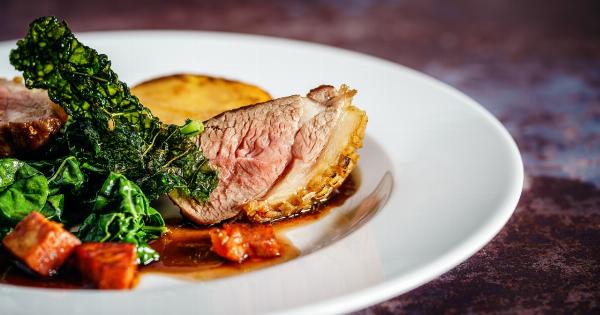In recent years, there has been growing concern about the role of red meat in the development of various health conditions, including cancer.
One particular area of interest is its potential link to breast cancer, which affects millions of women worldwide. Numerous studies have been conducted to investigate this connection, and while the findings are not conclusive, there is evidence suggesting that consumption of red meat may indeed play a significant role in increasing breast cancer risk.
Understanding Breast Cancer
Breast cancer is a complex disease characterized by the abnormal growth of cells in the breast tissue. It is the most commonly diagnosed cancer among women globally, accounting for approximately 25% of all cancer cases.
The exact causes of breast cancer are still not fully understood, but a combination of genetic, hormonal, and environmental factors is believed to contribute to its development.
The Role of Red Meat in Breast Cancer Risk
Red meat, which includes beef, pork, lamb, and veal, is a common staple in many diets around the world.
However, its consumption has been associated with an increased risk of developing various chronic diseases, including cardiovascular disease, type 2 diabetes, and certain types of cancer.
A number of components present in red meat, including saturated fats, heme iron, and certain carcinogens formed during cooking, have been suggested to contribute to the elevated cancer risk.
When it comes to breast cancer specifically, several mechanisms have been proposed:.
1. Hormonal Factors
Red meat consumption has been shown to increase circulating levels of estrogen, a hormone linked to breast cancer development. High levels of estrogen can promote the growth of breast cancer cells and contribute to tumor formation.
2. Insulin Resistance and Inflammation
A diet rich in red meat has been associated with insulin resistance and chronic inflammation, both of which are thought to play a role in the development of breast cancer.
Insulin resistance can lead to elevated insulin levels, which in turn may promote tumor growth. Chronic inflammation, on the other hand, can damage DNA and increase the likelihood of cancerous cell mutations.
3. Carcinogenic Compounds
During cooking, certain compounds such as heterocyclic amines (HCAs) and polycyclic aromatic hydrocarbons (PAHs) are formed.
These compounds have been shown to have carcinogenic properties and are found in higher concentrations in red meat compared to other types of meat. Prolonged exposure to these compounds through regular consumption of red meat may increase the risk of breast cancer.
Evidence from Studies
Several population studies have examined the association between red meat consumption and breast cancer risk. While the results have not been entirely consistent, a number of studies have reported positive associations:.
1. A Study in the United States
A large-scale study conducted in the United States found that women who consumed the highest amount of red meat had a 22% higher risk of developing breast cancer compared to those who consumed the least amount.
The risk appeared to be particularly pronounced for premenopausal women.
2. European Prospective Investigation into Cancer and Nutrition (EPIC)
The EPIC study, one of the largest ongoing studies examining the links between diet and cancer, found that high consumption of red meat was associated with an increased risk of breast cancer in postmenopausal women.
This association was stronger when considering the intake of processed red meat specifically.
3. A Study in Japan
A Japanese study revealed that high intake of red meat was associated with an increased risk of breast cancer among premenopausal women. The risk was further elevated in women with a family history of breast cancer.
Recommendations and Limitations
While the evidence regarding the connection between red meat consumption and breast cancer risk is not definitive, it is prudent to exercise caution and consider moderation.
Limiting the amount of red meat in the diet and opting for leaner cuts can be beneficial for overall health and potentially reduce the risk of various cancers, including breast cancer.
However, it is important to note that factors such as individual susceptibility, overall dietary patterns, and lifestyle choices also play significant roles in breast cancer development.
Reducing red meat consumption alone may not be enough to prevent breast cancer, and a holistic approach to maintaining a healthy lifestyle should be adopted.
Conclusion
The relationship between red meat consumption and breast cancer risk is a complex and multifaceted issue.
While more research is needed to establish a definitive link, current evidence suggests that a high intake of red meat may contribute to an increased risk of breast cancer, particularly in premenopausal and postmenopausal women.
As with any dietary concern, moderation and a balanced approach are key.
Choosing leaner meat options, incorporating more plant-based proteins, and maintaining a healthy lifestyle can collectively help reduce the risk of breast cancer and promote overall well-being.




























